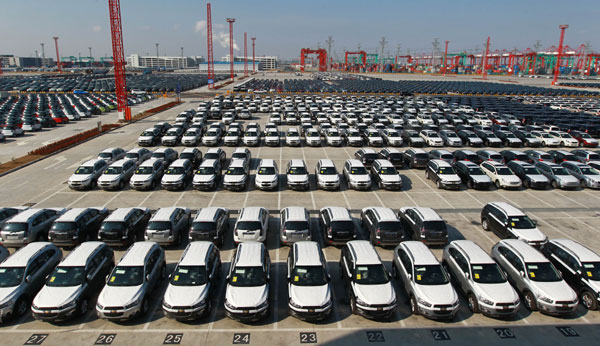 |
|
Vehicles ready for delivery at the Shanghai Free Trade Zone. [Photo/Xinhua] |
The number of cars imported outside formal channels approved by manufacturers is increasing as independent trade companies organize improved warranties and aftersales services.
Following recent intensive anti-monopoly probes into high prices for parts at authorized dealers, so-called parallel imports are expected to put more downward pressure on the high costs of owning and operating imported vehicles.
Earlier this year, the Shanghai Free Trade Zone applied to establish a trade center for paralleled imported vehicles. The plan is still awaiting approval by regulators.
But the Waigaoqiao Automobile Trade Market in the free trade zone already has about 20 companies selling such vehicles. The vehicles are also called "non-Chinese-standard" in the industry because they are made for markets in the US, Europe or the Middle East. They are usually bought by trade companies from distributors overseas and shipped to China through legal procedures.
But foreign manufacturers don't honor warranties on vehicles that are not imported and sold by their own authorized distributors.
Exclusion from warranties is a major reason that customers hesitate to buy the vehicles although they are usually much cheaper.
With fewer layers of organization needing to take a cut of revenues, independent trading companies offer lower prices than manufacturer-authorized distributors in China.
The trade center proposed by Shanghai Free Trade Zone aims to solve the problem by offering customers warranties and services.
According to the plan, vehicles imported and sold at the trade center are eligible for the same services as products sold by foreign carmakers' authorized dealerships in China.
The trade center also plans to set up a special compensation fund and partner with insurance companies to protect the rights of consumers.
The biggest advantage that authorized dealerships now have over parallel importers is better services.
If the trade center plan comes to fruition and is used in other cities in China, many believe it will take away a number of potential buyers of imported vehicles from the current authorized 4S dealerships of automakers.
